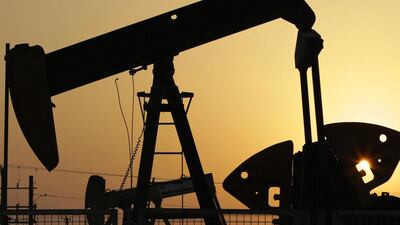The International Energy Agency yesterday warned that oil supply may not yet be declining steeply enough to mop up the excess in the system.
The monthly report by the Paris-based energy think tank echoed others, including an Opec study published on Monday, in noting that the oil price slump this year has begun to curb supply and severely hit investment worldwide, especially in North America which had been the main source of growth in oil production in recent years.
But the IEA emphasised some recent downbeat assessments – including one from the IMF – about the world economic outlook for next year and the effect that might have on demand for oil.
While demand growth rebounded sharply this year, “the outlook for oil demand growth is looking softer next year”, the IEA report warns.
It notes that the IMF’s latest World Economic Outlook report cut 0.2 percentage points from its economic growth forecasts for this year and next.
That, coupled with the likelihood that the demand stimulus from low oil prices will fade next year, means the IEA foresees oil demand growth falling to 1.2 million barrels per day (bpd) from this year’s 1.8 million bpd surge.
Certainly the rate of growth in supply from sources outside of Opec is slowing, the IEA has acknowledged, but there is a great deal of uncertainty about the market’s near-term prospects.
“Supply in the US – which had been the motor of growth – is already sinking swiftly: year-on-year gains have eased to just 0.3 million bpd from 1.6 million bpd during the first quarter,” the agency reports.
However, one of the key supply swing factors next year will be Iran and how quickly it will add supply to the market, assuming the deal to lift nuclear sanctions proceeds smoothly.
Experts differ widely on how much they think Iran can raise production from recent levels of about 2.9 million bpd – the IEA assumes it can go to 3.6 million bpd fairly quickly – which will depend on attracting investment and technology from foreign oil companies to reverse years of neglect.
“How quickly Iran can bring those extra barrels to the market will make a big difference to 2016 dynamics,” the IEA report states.
Iran is just one of many uncertainties that the IEA says clouds the outlook.
China is the big unknown on the demand side and while its economy has been slowing down, it is not clear how this will affect its demand for oil.
Its oil imports last month were strong, according to preliminary government data showing crude imports were up nearly 8 per cent in September from the previous month, and up 8.8 per cent year-on-year for the first nine months of 2015. That bucked a trend of lower imports generally by China last month.
China has been putting a considerable amount of oil into new storage capacity this year, which has contributed to rising world inventories. But ultimately, it is the country’s transport market that drives demand.
As Ethan Harris of Bank of America Merrill Lynch points out, China’s stimulus policy is focused on boosting consumer demand rather than export industries.
“Pessimists point to the recent drops in auto sales, industrial profits and both exports and imports,” Mr Harris said. But consumer-focused fiscal and monetary steps have been taken, “most recently, the government has introduced measures that stimulate demand for auto purchases and in the housing market.”
Although car sales fell in August, the IEA points out that there is still strong momentum for petrol demand.
“Transportation fuel demand [in China] remains strong in the face of mounting economic headwinds,” the IEA report says. Despite a dip in car sales, “many previous years of rapid vehicle sales growth are likely to underpin continued robust short-term gasoline demand growth in China”.
In other words, the 12.8 million new cars sold this year dwarfs the 700,000 taken out of circulation. Furthermore, there has been a strong shift to larger vehicles (SUVs and MPVs, which resulted in annual increases of 44.5 and 10 per cent in August, respectively), mirroring a similar trend in the US, spurred in part by low oil prices.
amcauley@thenational.ae

